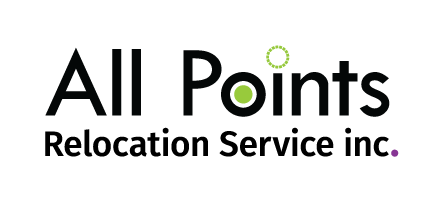The basic proposal from a Relocation Management Company will provide you with general information about the company and its capabilities. For example, you might need an RMC that can move personnel to a developing country or provide certain destination services. With an RFP, you can quickly cut providers who cannot meet this requirement.
Yet, there are a few questions that can assist you to learn more in-depth about your service provider. And we have a few tips on which questions will help you achieve that.
The Typical Questions
The typical questions include asking about their work and cost. Things like:
- How do you perform your work?
- How many relocations does your company do a year?
- Do you have any references?
- How are your financials?
- Describe your service workflow
- Describe your standard SLA’s
However, if you’re using sample questions or a previous form within your company, you will want to go over each question and make sure it’s relevant to your current relocation needs and programs. Procurement is a lengthy and involved process, touching various areas of your company for long periods of time. It is good to make certain that you are getting the right provider for you, as an outcome to that process.
Make sure that the questions are refined to your relocation policies specifically. If your current need is 90% domestic relocation, but you may do some international relocation in future, then you can develop international questions, but you can weight them lower than domestic questions.
The length and amount of RFP questions aren’t set in stone. If you’re getting responses from various people, double-check your final questions to ensure you’re not asking the same or comparable questions multiple times in the RFP. We often see the same question has been asked a slightly different way and we don’t know if the authors made a mistake or if they hoped to learn something different between the two questions.
#1 Ask About Corporate Culture
Corporate culture is an important aspect of any service provider you choose. A relocation management company should be a partner to your HR and not just a service provider. Because of this, it’s important to choose a company that aligns with your corporate culture before working with them long-term.
Find out how they will engage with and build relationships with your employees and almost as importantly with your HR. How do they treat their own employees? It could reflect on their philosophy behind how you will be helped. Do you have a fast-paced environment? They should be a company that respects this.
#2 Learn About the Relationship With Vendors
Supplier relationships are crucial to relocation management companies; they are an essential part of the business, and getting them right will mean greater success for your employees relocating. In fact, after managing the various pieces of the overall relocation performance, one of the most important things an RMC does is manage a supplier network.
This way, one of the first questions we need to ask when engaging a relocation management company is how they deal with their vendors and suppliers.
This question should come early in the selection process — not only because of quality concerns — but also because it will help you understand how the RMC prioritizes supplier relationships. What are the SLA’s in place? What are the service satisfaction barometers? How does the RMC prioritize supplier quality and compliance? We go as far as to say you should ask for supplier references.
#3 Ask them to look into the Future of Relocation Industry
It can also help to ask in an RFP where they see the future of the industry going and what they are doing to anticipate the next change. For example, if a company has a weak response to future looking plans and does not mention technology, this could be a red flag for your relocations three years down the road. Also, a great strategic plan shows credibility and confidence in the company.
#4 Ask them about their technology
Technology is now a touchstone of the relocation industry. There are various technologies out there. The RMC should describe, in detail, the user experience and functionality of their relocation software for transferees and for HR. You can ask them to attach screen shots, but you should also be sure that they are prepared to give a live demonstration if they get short-listed.
Does the portal carry live data? Is reporting customizable? Are workflows customizable? What is the security?
Finally, you will want to understand how the software really impacts / improves the employee experience. How does it help them with relocation? How can they interact with it, and how does this make relocation easier? What is the mobile experience?
#5 Account management: caseloads, after-hours service
These may be questions that HR’s and procurement do not think about, but they are all important. The main point of contact for HR will be the account manager. You should ask for the bio of a proposed account manager, and be prepared in reference interviews to ask questions about the quality of the account management relationship. Your sales rep may not be your account manager, so it is best to find out during the procurement process.
Caseloads and after-hours service are also great questions to ask, as it tells about how a company will be able to spend the appropriate time with your transferee and your HR department, and how your employee will be assisted after normal business hours.
Start early and edit your final list of questions
Waiting until your present contract expires is a formula for disaster, as it almost guarantees a rushed procedure. Instead, take your time and plan accordingly.
The above gives you a start on some areas that might be of interest to your company. But you may have other questions, or these questions have given you some ideas about new topics. When you do get your final list of questions, be prepared to edit them to see if you can winnow them down a little. After all, every question must matter to the company. If there is a weak question, it is just an extra answer for you to review with your precious time.
Establishing a high-quality approach for managing a cost-effective and time-sensitive bid process can aid you in selecting the finest employee relocation partner for your firm.

